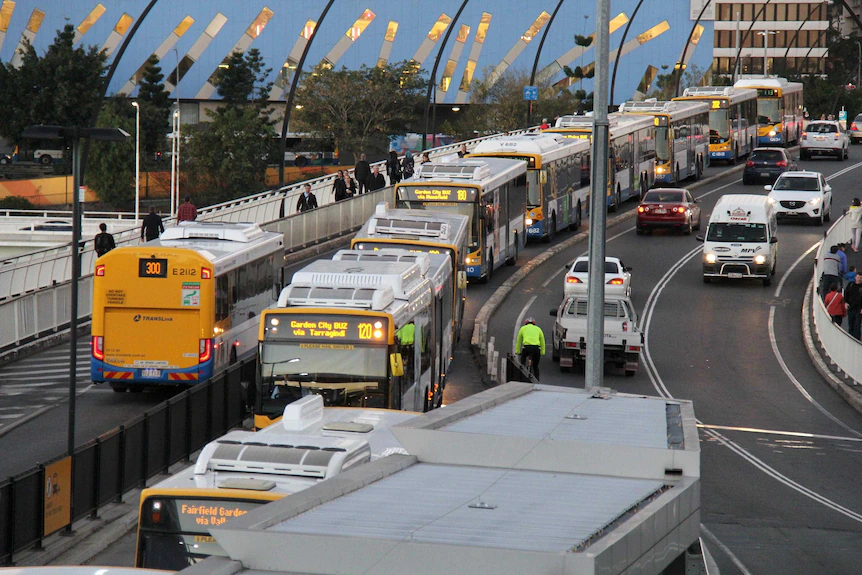Nouns / noun phrases / collocations áp dụng cho chủ đề transport trong ielts writing and speaking:

- Congestion: sự tắc nghẽn-> Traffic congestion = traffic jam: sự ùn tắc giao thông, kẹt xe.
- Pavements: vỉa hè
- Electric cars: xe điện
- Fines: phạt phí
- High traffic volume: lưu lượng giao thông
- Traffic laws/ traffic safety rules: luật giao thông/ quy tắc an toàn giao thông
- Traffic signs/ traffic lights: biển báo giao thông/ đèn giao thông
- Rush hours: giờ cao điểm
- Off-peak hours: ngoài khung giờ cao điểm
- Pedestrian crossing = crosswalk: vạch kẻ cho người đi đường
- Reliable schedule: lịch trình (phương tiên giao thông công cộng) chuẩn
- Transport infrastructure: cơ sở hạ tầng giao thông
- Ease traffic flow (v): làm giảm lưu lượng giao thông
- Underground: tàu điện ngầm
- Railway train: tàu hỏa
- Coach: xe khách
- High-speed train: tàu đắt tốc
- Hot-air balloon: khinh khí cầu
- Propeller plane: Máy bay động cơ cánh quạt
- Glider: Tàu lượn
- Hovercraft: tàu đi lại nhờ đệm không khí
- Speedboat: tàu siêu tốc
- Rowing boat: thuyền có mái chèo
- Road narrows: đường hẹp
- Road widens: đường trở cần phải rộng hơn
- Slow down: giảm tốc độ
- Speed limit: giới hạn tốc độ
- Slow down: giảm tốc độ
- Road narrows: đường hẹp
- Road goes right: đường rẽ phải
- No crossing: cấm qua đường
- Cross road: đường giao nhau
- Handicap parking: chỗ đỗ xe của người khuyết tật
- Roundabout: bùng binh
- Uneven road: đường mấp mô
- Speed limit: giới hạn tốc độ
- Dead end: đường cụt
- Slippery road: đường trơn
- Traffic wardens: người điều tiết giao thông
- people who travel by car = people travelling by car = car users: những người đi lại bằng xe hơi
- people who travel by train = people travelling by train = train passengers: những người đi lại bằng xe lửa
- drive to work = travel/go/commute to work by car: đi làm bằng xe hơi
- use public transport instead of private vehicles: sử dụng phương tiện giao thông công cộng thay vì xe riêng
- the most popular way to commute = the most pupular mode of transport: cách phổ biến nhất để đi lại/ phương tiện giao thông phổ biến nhất
- commuting costs: chi phí đi lại
- commute/travel long distances to…: đi quãng đường dài tới…
- daily travel = daily commute: việc đi lại hàng ngày
- driving under the influence of…: lái xe dưới sự ảnh hưởng của…
- run a red light: vượt đèn đỏ
- pedestrian (n): người đi bộ
- cycle lanes = bike lanes: những tuyến đường dành cho người đi xe đạp
- improve road traffic safety: cải thiện an toàn giao thông đường bộ
- reduce traffic accidents: giảm thiểu tai nạn giao thông
- driving offence: sự vi phạm luật giao thông
- licence suspension: việc đình chỉ/treo bằng lái
- install speed cameras: lắp đặt các camera theo dõi tốc độ
- speeding (n): việc lái xe quá tốc độ
- impose stricter punishments on sb: áp đặt các hình phạt nghiêm khắc hơn lên ai đó
- traffic jams = traffic congestion: sự ùn tắc giao thông
- bad driving habits: những thói quen xấu khi lái xe
- congestion pricing = congestion charges: việc thu phí ùn tắc giao thông
- ban cars from city centres: cấm xe hơi khỏi các trung tâm thành phố
- parking space: khu vực đậu xe
- pose a serious threat to…: gây ra sự đe dọa nghiêm trọng cho…
- dangerous drivers: những người lái xe nguy hiểm
- to be encouraged to…: được khuyến khích làm gì
- driving without a helmet: lái xe không đội nón bảo hiểm
- Perspiration problems: vấn đề về hô hấp
- Road safety measures: các biện pháp an toàn giao thông đường bộ
- Road maintenance: duy trì đường xá
- To conduct regular vehicle inspections: kiểm duyệt phương tiện thường xuyên
- To raise petrol prices: tăng giá xăng
- Lead-free petrol: xăng không chì
- Traffic-free zone: khu vực không có giao thông, phương tiện qua lại
- A tachograph: đồng hồ tốc độ
- Joy riding: đua xe
- traffic participants: người tham gia giao thông
- degraded: xuống cấp
- potholes: ổ gà
- counter-urbanization policies: chính sách phản đô thị hóa
- concession fares: giảm giá vé
- car tax: thuế ô tô con
- build modern facilities: xây dựng cơ sở vật chất hiện đại
- ease the pressure on the roads: giảm áp lực lên đường (bộ)
- overpass : cầu vượt
- service road : tuyến đường phụ
- emissions : khí thải
- vehicle emissions : khí thải xe cộ
- to tackle/ease/reduce noise pollution : giải quyết, làm giảm ô nhiễm tiếng ồn
- environmentally-friendly vehicles/ transportation/ fuel : xe cộ, phương tiện, nhiên liệu thân thiện với môi trường
- autonomous vehicle : xe không người lái hoặc xe tự lái
- high-speed rail : đường sắt cao tốc
- bumper to bumper /idiom / : theo hàng dọc, nối đuôi nhau
- backseat driver /idiom / : những người không ở vị trí tài xế nhưng lại thích điều khiển
- hit the road /idiom / : khởi hành
- hitch a lift/ride /idiom /: quá giang, đi nhờ xe
- beat the traffic /idiom / : ra đường trước giờ cao điểm để không bị tắc
- introduce/enforce traffic laws : ban bố , thi hành luật giao thông
- commit driving offences (Vi phạm giao thông)
- prevent driving offences (ngăn chặn hành vi vi phạm giao thông)
Video đính kèm phát âm những từ vựng trên do các thầy cô bản xứ của IELTS SASA thưc hiện nhằm hỗ trợ các bạn học từ vựng phát âm chính xác cải thiện tiêu chí pronunciation trong ielts speaking
Đề thi thật cho chủ đề transport
- The best way for governments to solve the problem of traffic congestion is by providing free public transport 24 hours per day, and seven days a week. To what extent do you agree or disagree?
- Some cities have vehicle-free days when private cars, trucks and motorcycles are banned from the city center. People are encouraged to use public transportation such as buses, taxis and metro on vehicle-free days. Do the advantages outweigh the disadvantages?
- Solving transportation problems:The best way to solve the traffic and transportation problem is to encourage people to live in cities rather than suburbs or countryside. Do you agree or disagree?
- Nowadays traffic is a serious problem in big cities. Why is this so and what effects does it bring? Give reasons for your answer and include any relevant examples from your own knowledge or experience.
- In cities and towns all over the world, the high volume of traffic is a major problem. What are the causes of this and what actions can be taken to solve this problem?
- Nowadays traffic jams are becoming a big problem in most cities and bigger towns. Some people suggest that widening of roads is a solution to this problem. Do you agree or disagree?













